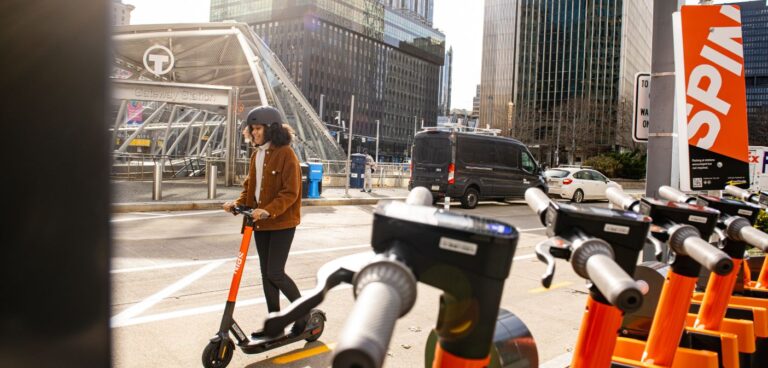The US city of Pittsburgh, Carnegie Mellon University (CMU) and micromobility service provider Spin have launched a ‘first-of-its-kind’ study that will give up to 50 low-income residents in Pittsburgh free access to shared mobility and public transit services to evaluate its effects on participants’ socioeconomic progress.
The year-long research will study the potential of free transportation to improve people’s economic, health, and social outcomes when financial barriers to transportation are removed, with a goal of improving access to jobs, education, healthcare, social services, and recreational activities.
The trial will focus on residents of the Manchester and Chateau neighbourhoods of Pittsburgh, with recruiting and ongoing support provided by the Manchester Citizens Corporation.
CMU will evaluate the trial. Eligible participants will receive free access to the Move PGH transportation services including public transit, Spin e-scooters, Pogoh bikes and Zipcar.
The pilot is funded by a US$200,000 (£165,132) grant awarded from the Richard King Mellon Foundation, with Spin contributing an additional US$50,000 (£41,283).
“Having access to affordable and reliable transportation is critical in helping families across our city find a pathway to prosperity,” said Pittsburgh mayor Ed Gainey.
“This pilot programme will help us more fully understand just how much of an impact transportation has on the lives and wellbeing of people in Pittsburgh.”
In total, 100 people will take part in the pilot and will be randomly allocated to two groups: 50 of them will receive free access to Move PGH transportation services, and 50 of them will not, to allow for comparison.
Analysis will include survey and travel behaviour data collected from participants and the transportation service providers, along with anonymised details on participants’ income and use of various forms of public assistance from the Allegheny County Department of Human Services.
The research is expected to conclude next summer.





